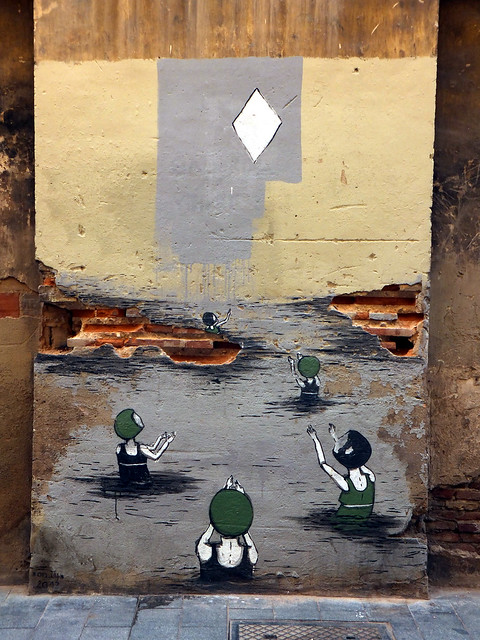Teaching
My teaching aims at enabling students to make critical judgments and take action. To this end, I design my courses in a controversial, subject- and lifeworld-centred way. The focus is always on concrete social or individual issues, for whose reflection, processing and possibly solution a plurality of reflexive and performative resources are developed jointly.
Didactically, I build on insights gained in exchange with didacticians and educational science considerations. In critical differentiation, the detailed examination of conventional (economic) education also forms an essential point of orientation.
So far, the cultural history of economic thought as well as the reflexive expansion of leading categories such as “economy” or “innovation” have been the focal points of my educational work.
Courses
SuTe 2025, M.A. Economies – Sustainability – Social Design and M.A. Economies – Responsibility – Institutional Design, Hochschule für Gesellschaftsgestaltung: Theories of Transformation.
WiTe 2024/25, M. A. International Business and Sustainability, University of Hamburg: Re-Thinking Economies: Diverse, Embedded, Transformative.
SuTe 2024, M. A. Sociology, University of Hamburg: Economies and Economics: basics, topics and recents trends in the Social Studies of Economics.
SuTe 2024, M. A. International Business and Sustainability, University of Hamburg: Knowledge Exchange in Sustainability Transitions Research.
SuTe 2024, M.A. Economies – Sustainability – Social Design and M.A. Economies – Responsibility – Institutional Design, Hochschule für Gesellschaftsgestaltung: Theories of Transformation. Co-Teaching with Prof. Dr. Silja Graupe and Prof. Dr. Oliver Schlaudt.
SuTe 2024, Hamburg Graduate School, University of Hamburg: Doing STS Research: Cases and Concepts. Co-conception and coordination with Prof. Dr. Sabine Maasen.
WiTe 2023/24, M. A. International Business and Sustainability, University of Hamburg: Science 4 Impact!? Varieties of Knowledge Exchange in Socioeconomics.
WiTe 2023/24, B.A. Sozialökonomie, University of Hamburg: Anno 2044. Zukunftswerkstatt zu digitalisierten Gesellschaften.
Co-Teaching with Femke Julia Opper.
WiTe 2023/24, Hamburg Graduate School, University of Hamburg: Doing STS Research: Cases and Concepts. Co-conception and coordination with Prof. Dr. Sabine Maasen and Dr. Barbara Sutter.
SuTe 2023, M. Sc. Interdisziplinary Public and Nonprofit Studies, University of Hamburg: Science and Economy: a stroll from economization to co-creation.
SuTe 2023, M. A. International Business and Sustainability, University of Hamburg: Re-Thinking the Economy: Embedded, Diverse, Transformative. Co-Teaching mit Prof. Dr. Sabine Maasen.
SuTe 2023, Hamburg Graduate School, University of Hamburg: Doing STS Research: Cases and Concepts. Co-conception and coordination with Prof. Dr. Sabine Maasen and Dr. Barbara Sutter.
WiTe 2022/23, M. Sc. Interdisziplinary Public and Nonprofit Studies, University of Hamburg: Science and Politics: Varieties of a tense relationship.
WiTe 2022/23, M. A. International Business and Sustainability, University of Hamburg: Re-Thinking Innovation: Green, Open, Social. Co-Teaching with Prof. Dr. Sabine Maasen.
WiTe 2021, All master courses at Cusanus University: Propaedeutic Course “Thinking like an economist”.
WiTe 2021/22, Cusanus University, MA Economics – Sustainability – Social Transformation: Innovation and paradigmatic change in economic thought.
SuTe 2021, Cusanus University, BA Economics – Sustainablity – Transformation: Recent developments in economic theory.
WiTe 2020/21, Cusanus University, All study programmes: Lecture groups on the Corona Lecture series.
SuTe 2020, Cusanus University, All study programmes: Lecture groups on the Corona Corona Lecture series.
WiTe 2019/20, Cusanus University, MA Economics: Kulturgeschichte 2 ‒ Neoklassische Theorie und ökonomische Bildung.
SuTe 2019, Cusanus University, MA Economics: Studia humanitatis zum Thema Gemeinsinn.
WiTe 2018/19, Cusanus University, MA Economics: Kulturgeschichte 2 ‒ Neoklassische Theorie und ökonomische Bildung.
SuTe 2018, Cusanus University, MA Economics: Wirkungsforschung 2.
WiTe 2017/18, Cusanus University, MA Economics: Kulturgeschichte 3 ‒ Neoklassische Theorie und ökonomische Bildung.




